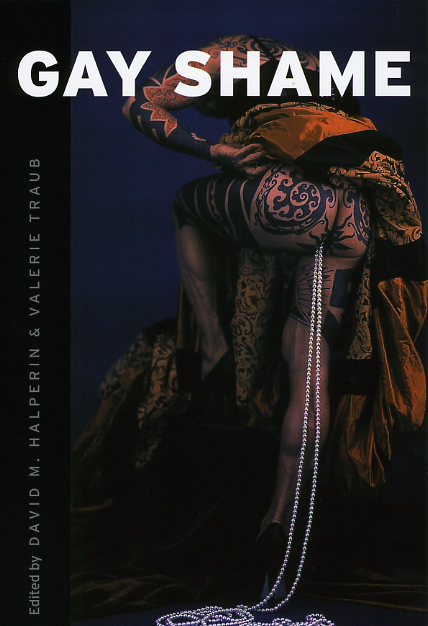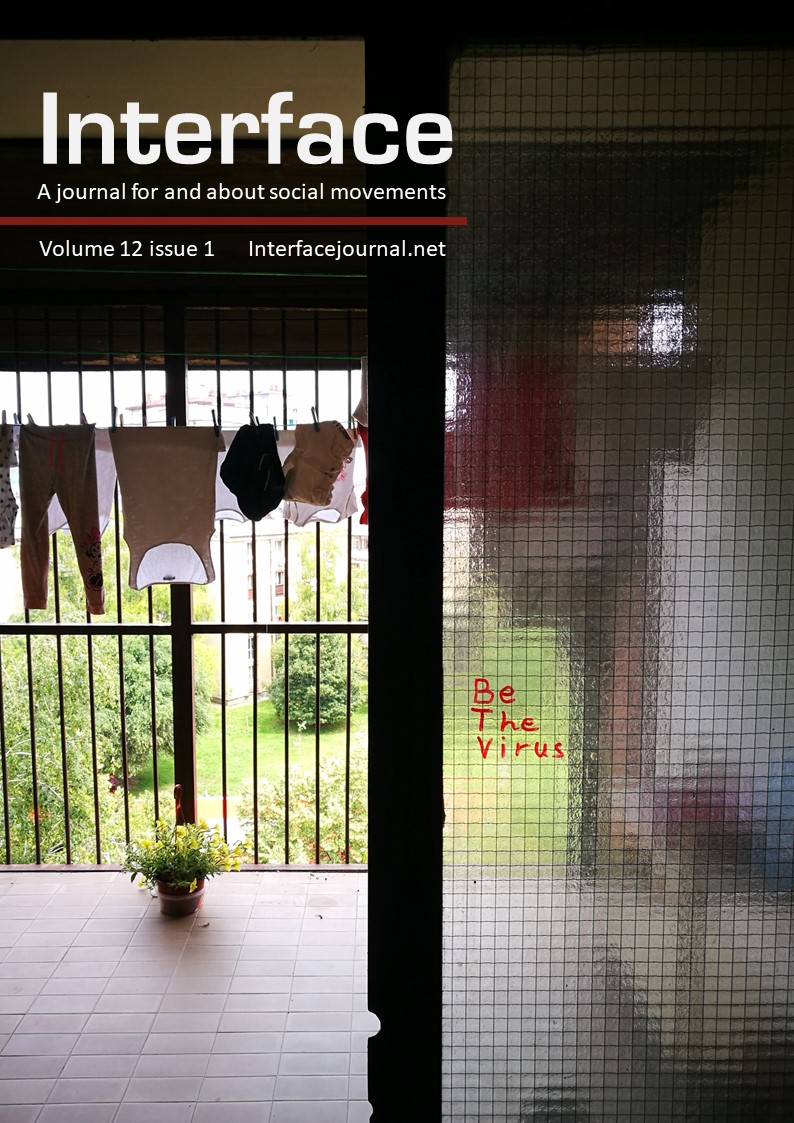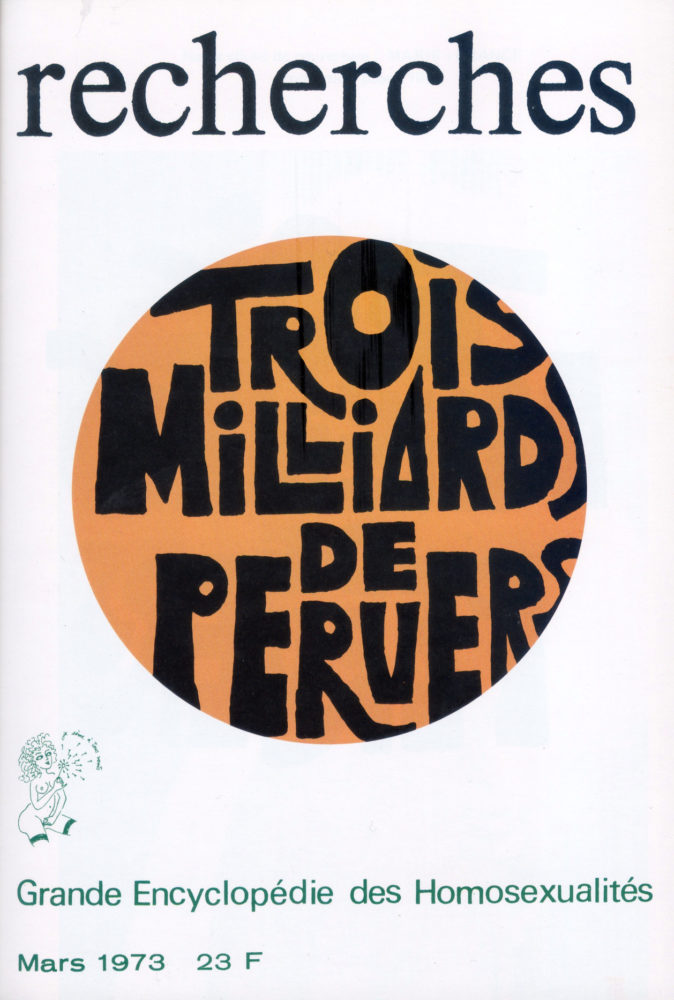David M. Halperin, Valerie Traub (eds.): Gay Shame (2009)
Filed under book | Tags: · identity, lgbtq, queer, queer theory, theory

“Ever since the 1969 Stonewall Riots, “gay pride” has been the rallying cry of the gay rights movement and the political force behind the emergence of the field of lesbian and gay studies. But has something been lost, forgotten, or buried beneath the drive to transform homosexuality from a perversion to a proud social identity? Have the political requirements of gay pride repressed discussion of the more uncomfortable or undignified aspects of homosexuality?
Gay Shame seeks to lift this unofficial ban on the investigation of homosexuality and shame by presenting critical work from the most vibrant frontier in contemporary queer studies. An esteemed list of contributors tackles a range of issues—questions of emotion, disreputable sexual histories, dissident gender identities, and embarrassing figures and moments in gay history—as they explore the possibility of reclaiming shame as a new, even productive, way to examine lesbian and gay culture.”
Publisher Chicago University Press, 2009
ISBN 9780226314372, 0226314375
x+395 pages
via Flux
Reviews: Victor Stepien (Journal of Homosexuality, 2012), Karsten Schubert (hugs&kisses, 2012, DE).
PDF (6 MB, updated on 2021-1-10)
Comment (0)Interface, 12(1): Organizing amidst COVID-19: Sharing Stories of Struggle (2020)
Filed under journal | Tags: · activism, art, contagion, ecology, feminism, food, internationalism, labour, lgbtq, migration, pandemic, quarantine, refugees, resistance, social movements, solidarity, virus

“The world is on fire, with both fever and flame. After a few months of lockdown, things are erupting in new ways. The movement for Black Lives is demanding an end to anti-Black racism and conversations about abolishing the police are on late night television. In North America, a new world appears to be dawning, one that didn’t seem possible even a month ago. Meanwhile, in the new centre of global capitalism, the long-standing Hong Kong movement seems to be on the point of succumbing to a new wave of repression.
Around the world, movements are strategizing about how to ensure that no one is left behind. In April we put out a call for short pieces on this theme. We could see that the imminent arrival of the virus had generated many different struggles – initially pressure to force some states to take action in the first place, resistance to cuts and demanding benefits. Then came struggles characterized by mutual aid, efforts to protect essential workers, and the most vulnerable, such as the homeless, prisoners, the elderly and the undocumented.
This issue contains pieces originally written for our rolling coverage of movements in the virus, as well as a few pieces written especially for this special issue. They represent reflective activists and engaged researchers trying to grasp what their movements were doing, and what they should do, in an unprecedented situation.
The contributions reflect on movements in Argentina, Australia, Austria, Belize, Bosnia and Herzegovina, Brazil, Canada, China, Denmark, Egypt, France, Germany, Greece, Haiti, India, Iran, Ireland, Italy, Japan, Kenya, Mexico, Morocco, Pakistan, Russia, Serbia, Singapore, Spain, Switzerland, Syria, Turkey, the UK, the US and globally and are written in English, French, Portuguese and Spanish.” (from Editorial)
Edited by Sutapa Chattopadhyay, Lesley Wood, and Laurence Cox
Publisher Interface, July 2020
ISSN 2009-2431
683 pages
Recherches, 12: Trois milliards de pervers: Grande encyclopédie des homosexualités (1973) [FR, EN]
Filed under book, journal | Tags: · body, gender, lgbtq, psychoanalysis, sexuality, social criticism, theory

“‘Trois milliards de pervers: Grande encyclopédie des homosexualités’ [Three Billion Perverts: The Big Encyclopedia of Homosexualities] is the title of the twelfth issue of the journal Recherches, founded in 1965 by Félix Guattari. Published in March 1973, this issue caused a scandal, proclaiming the irruption of homosexuality in French society. Very quickly banned, seized, and destroyed for breach of moral standards, it became a milestone in the history of homosexual struggles. Recently reprinted, this publication is at once an historical document and an element of reflection for contemporary struggles for emancipation, shedding light on what could be a homosexual affirmation conceived as a radical break with the normative structures running through the social space.
Combining testimonies, original texts, and interviews; articulating social criticism, literature, philosophy, and psychoanalysis; across spaces as diverse as cafés, political meetings, prisons, asylums, parks, and urinals; and bringing together contributions from such figures as Gilles Deleuze, Fanny Deleuze, Michel Foucault, Jean Genet, Felix Guattari, Daniel Guérin, Guy Hocquenghem, Jean-Jacques Lebel, the actor Marie-France, Vera Memmi, Jean-Paul Sartre, and Jozy Thibaut, ‘Trois milliards de pervers’ takes the form of a collective of homosexuals reflecting on the come-on, masturbation, transvestites, scouting, and militant movements, in order to call into question all forms of desiring-production. As such, this publication set out to establish an entirely ‘new scientific spirit.'” (Source)
Publisher Recherches, Paris, Mar 1973
216+[8] pages
Reviews: Le Nouvel Observateur (1973), Les cahiers du GRIF (1974).
PDF (17 MB)
HTML, PDF (English trans. of Foucault’s Testimony at the Trial of Félix Guattari, in 1974, after the publication was seized; and “La Femme de Drague”, a conversation between seven women addressing the social and affective economy of seduction, trans. Gila Walker, Glass Bead, 2019)

